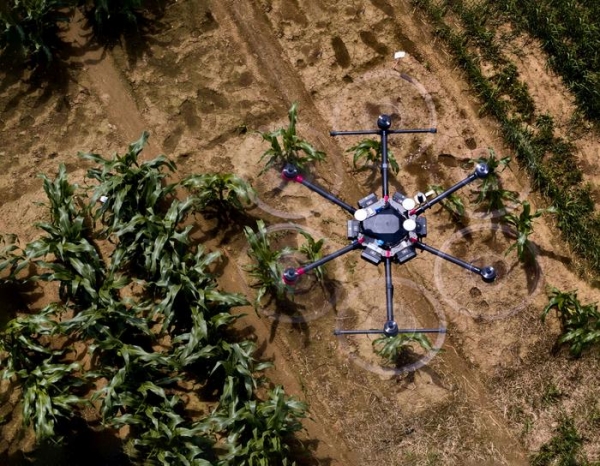Drones monitoring fields for weeds and robots targeting and treating crop diseases may sound like science fiction but is actually happening already, at least on some experimental farms.
Drones monitoring fields for weeds and robots targeting and treating crop diseases may sound like science fiction but is actually happening already, at least on some experimental farms. Researchers from the PhenoRob Cluster of Excellence at the University of Bonn are working on driving forward the smart digitalization of agriculture and have now published a list of the research questions that will need to be tackled as a priority in the future. Their paper has appeared in the “European Journal of Agronomy.”
That the Earth feeds over eight billion people nowadays is thanks not least to modern high-performance agriculture. However, this success comes at a high cost. Current cultivation methods are threatening biodiversity, while the production of synthetic fertilizers generates greenhouse gases, and agricultural chemicals are polluting bodies of water and the environment.
Many of these problems can be mitigated by using more targeted methods, e.g. by only applying herbicides to those patches of a field where weeds are actually becoming a problem rather than treating the whole area. Other possibilities are to treat diseased crops individually and to only apply fertilizer where it is really needed. Yet strategies like these are extremely complicated and virtually impossible to manage at scale by conventional means.
Read more at University of Bonn
Image: Among other things, researchers in the PhenoRob Cluster of Excellence at the University of Bonn are investigating the use of drones in agriculture. (Credit: Photo: Volker Lannert / University of Bonn)




